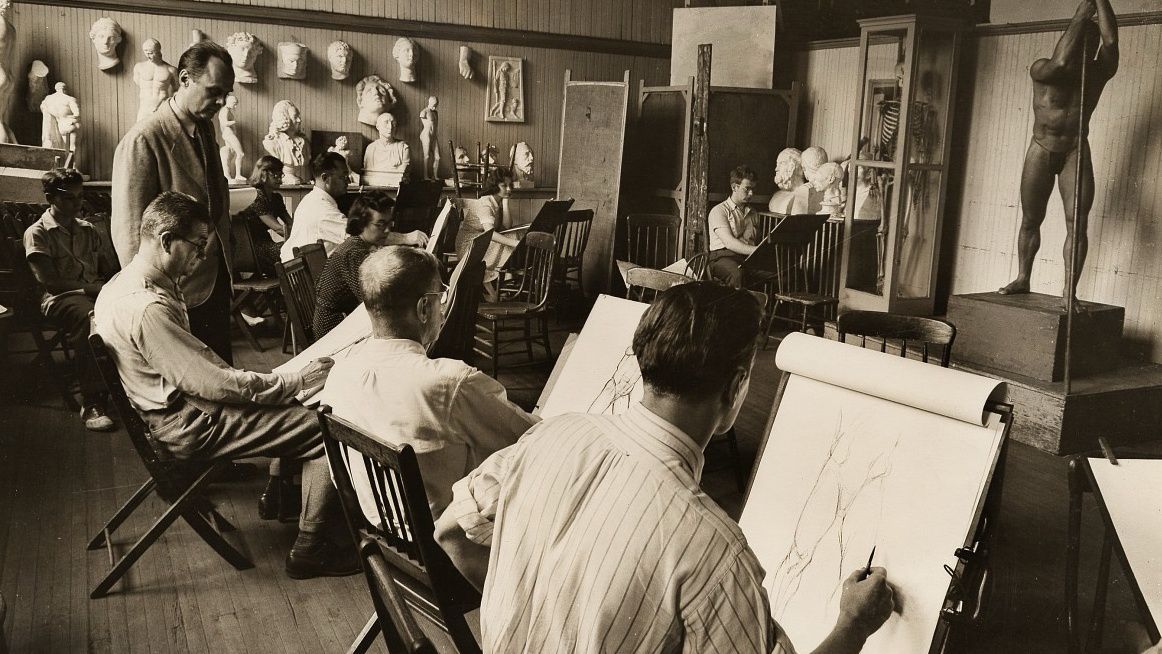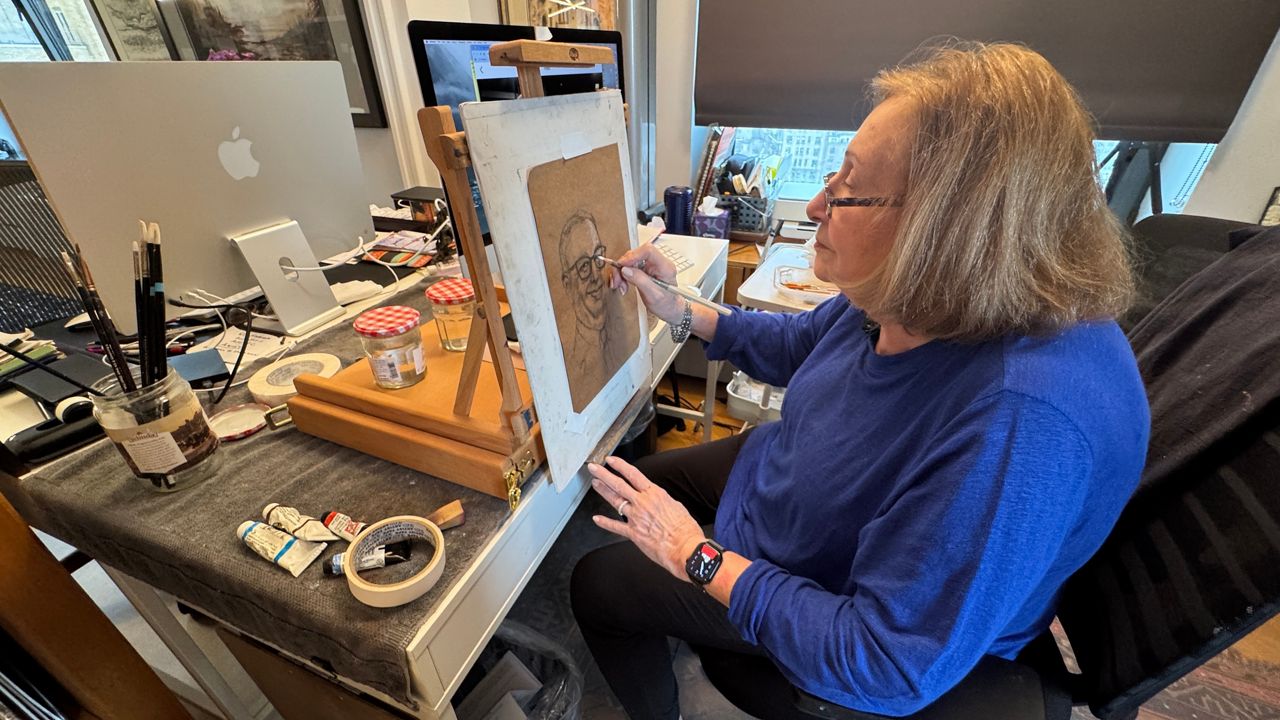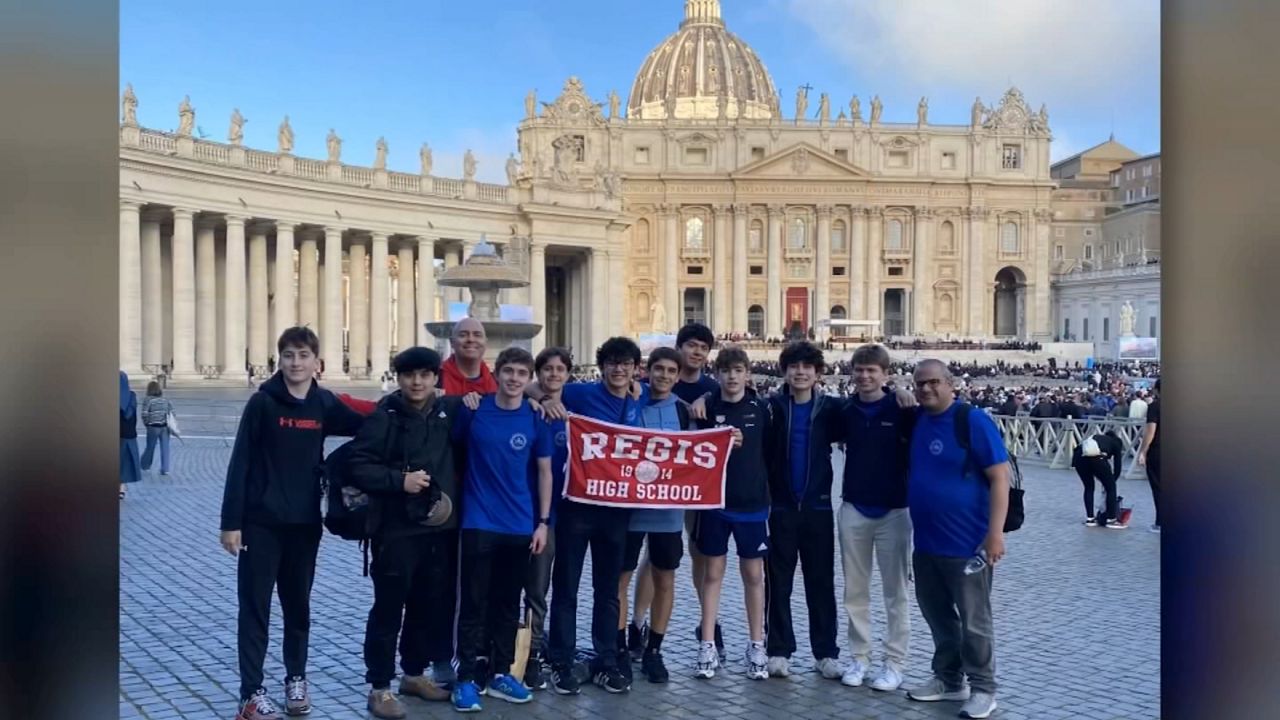Before it was a symbol, before it was carved into bronze, “Give me your tired, your poor, your huddled masse yearning to breathe free” was just ink on paper, a poem to raise funds for the pedestal upon which Lady Liberty now stands.
“The first time I held the Lazarus book, and I have a strict rule, we don’t cry in the archive, I found myself becoming very emotional,” Melanie Meyers, chair of Collection and Engagement of the American Jewish Historical Society, said.
What You Need To Know
- The American Jewish Historical Society was founded in 1892 to combat the rise in antisemitism and highlights the accomplishments of American Jews
- The archive is open to researchers, students and the public, both in-person and online
- NYPD data shows a 17% increase in antisemitic hate crimes in the first quarter of this year, compared same time last year. Those now make up 58% of all hate crimes in the city
Inside the American Jewish Historical Society in Manhattan, Emma Lazarus’ handwritten words live on, safeguarded by Melanie Meyers, the eighth steward in its 133-year history.
“The story we are sharing is that the history of the Jewish people in the Americas is rich, is important, and goes back, I think, much farther than most people realize,” Meyers said.
That history, rife with struggle. But the archive doesn’t dwell on antisemitism, it highlights the accomplishments of American Jews.
It’s founded to confront hate and show how Jewish Americans have shaped the nation — that urgency hasn’t gone away.
NYPD data shows a 17% increase in antisemitic hate crimes in the first quarter of this year, compared same time last year. Those now make up 58% of all hate crimes in the city.
“We emphasize again those stories of resilience and the people who fought against that,” Meyers said. “For every Henry Ford who’s writing antisemitic propaganda, we have Jewish citizens forming organizations to push back.”
Not far from Lazarus’ lines: a bat, given to Hank Greenberg’s team after winning the American League pennant.
“He was taunted from the stands. Opposing players and teams made antisemitic comments,” Meyers said.
But Greenberg kept swinging, and from pedestal to pennant, visitors come for more than the artifacts.
“It’s just important, I think, to have researchers come in and get to kind of look through these papers with a contemporary eye,” Sophie Cornfield, an American Jewish Historical Society fellow, said.
“It’s a treasure, scholars may be looking for one thing, but find something else entirely,” visitor Gordon Dale said.
The archive is open to researchers, students and the public, both in-person and online.
In the face of modern-day antisemitism, Meyers says coming here is a way to learn, reflect and carry history forward.
“These are papers that belong to everyone. I think all of us that have had this position take the maintenance, the stewardship, the care of this archive with the utmost seriousness,” she said.










_Mothers_Day_Flowers_PKG_CC_134193579_2449)
